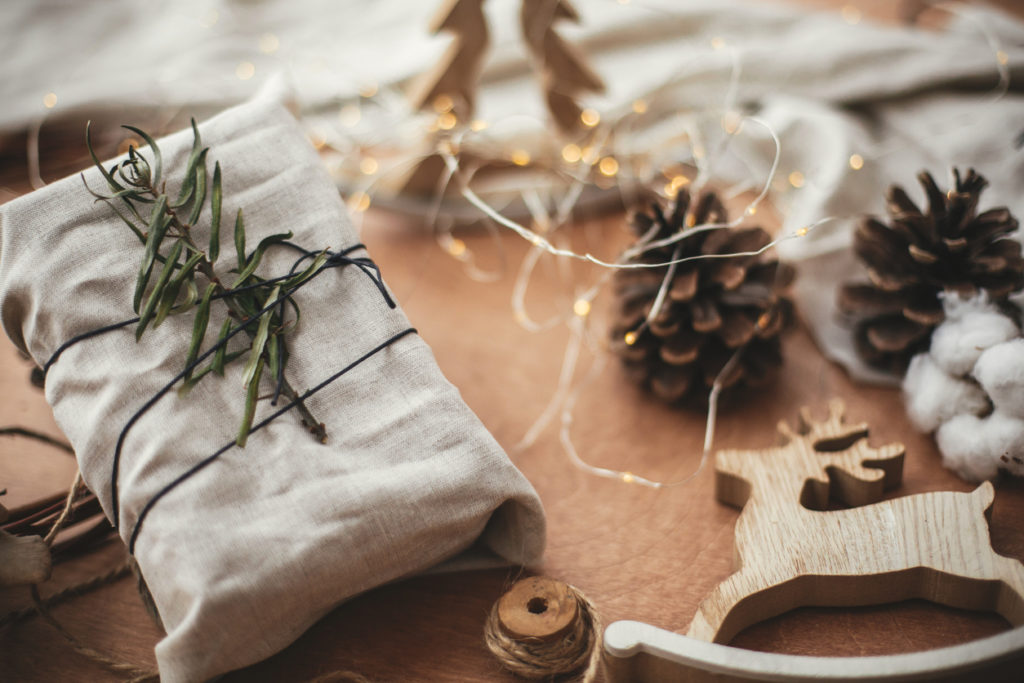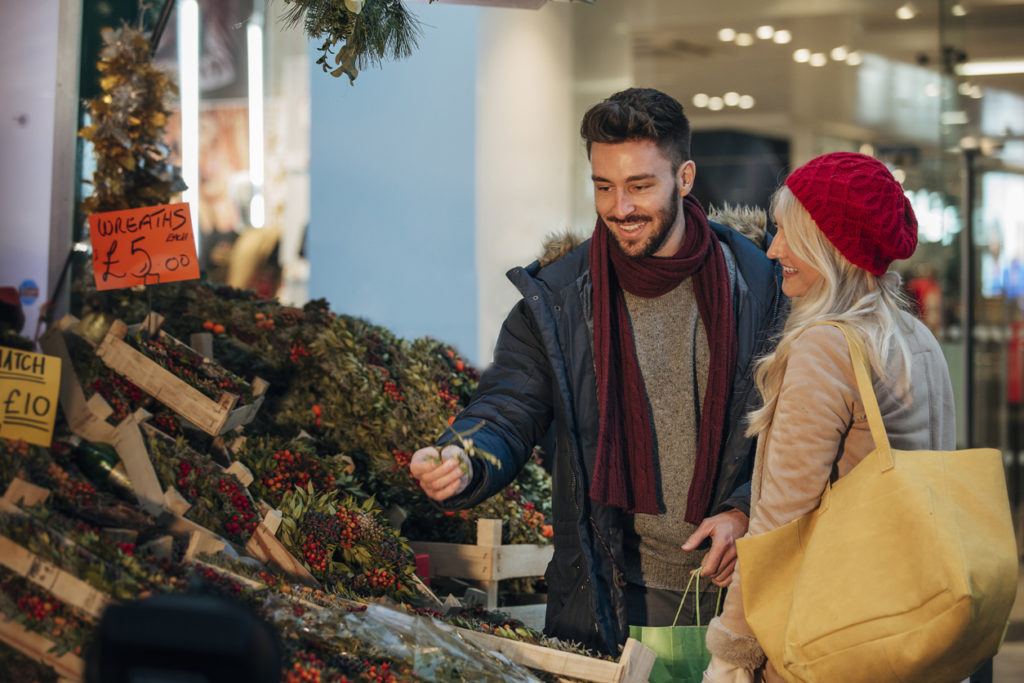One thing really getting us in the mood for Christmas are supermarket TV ads for festive food. However mouthwatering, tempting and convenient it may be to dash around your local supermarket snapping up pre-prepared Christmas food; you cannot help but notice the amount of unnecessary packaging that comes with it!
Go, ready with your own bags and containers and buy loose fruit and vegetables. Shop at counters for meat, fish and cheese and you never know, not only will you be helping to save on packaging but your pocket may benefit too; as very often products found there can be attractively priced. When living solo and needing small quantities, you’ll also be reducing the possibility of waste. By knowing where to be savvy with your food shop, you’ll choose luxury foods discerningly.
Alternatively, you can help reduce waste by shopping at local farms and farmers markets for fresh, locally grown and reared products. Again, taking along your own shopping bags and containers from home will eliminate the need for plastic bags and packaging. Plus you get to hand-select your own fresh fruit and vegetables for your Christmas dinner and you can pick the most plump-looking fresh turkey or roast for your table, direct from the farmer! With practically zero-food-miles involved with shopping locally, you can save yourself and the planet a small fortune at the same time.
Plan to spend a day or two at home cooking, baking and preparing Christmas dinner or festive food. Freezing portions of veg, mince pies, puddings and biscuits in advance will help make the festive period as easy as possible on yourself, reducing the need to buy pre-packed and otherwise expensive food. By preparing and cooking, you’ll have the food you want and love at the times you wish for it, made to delight your very own taste buds.











